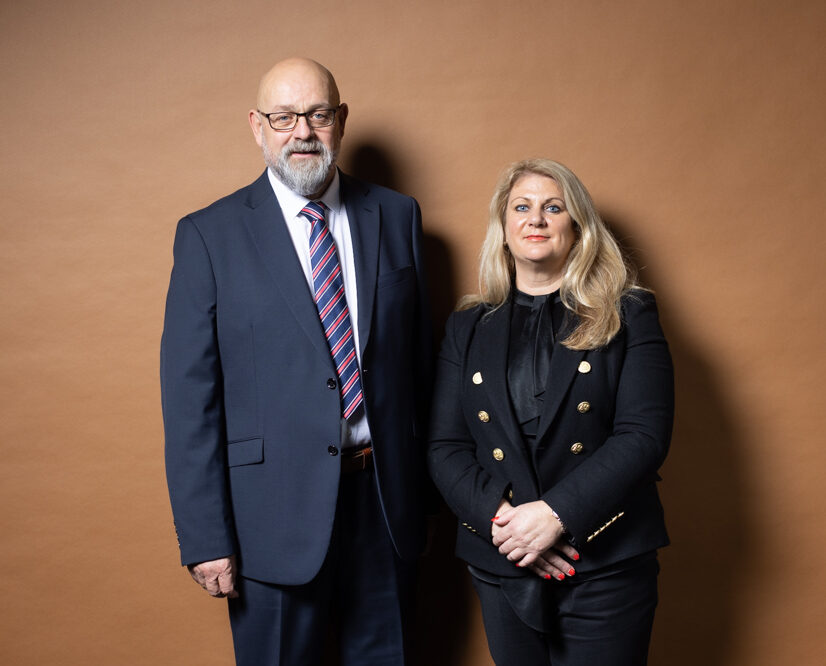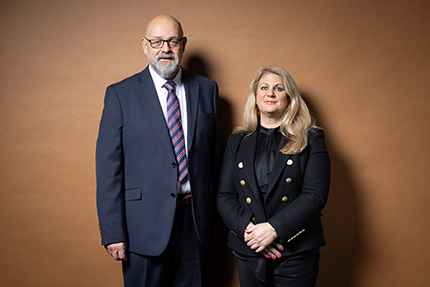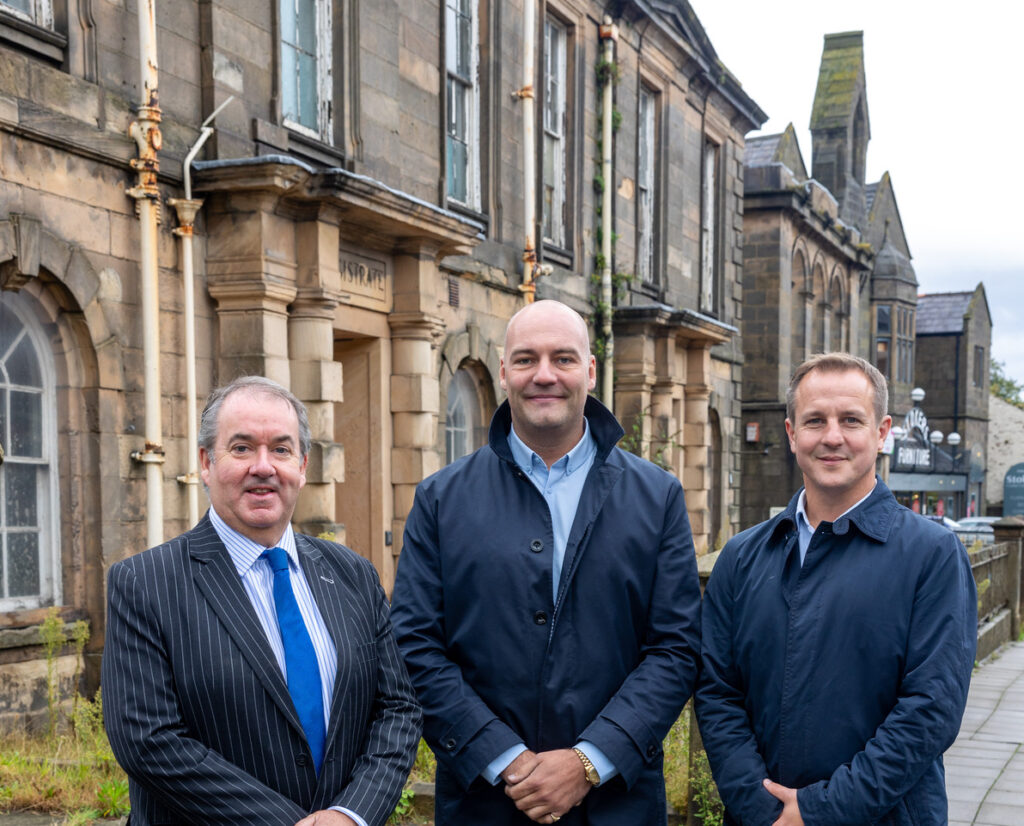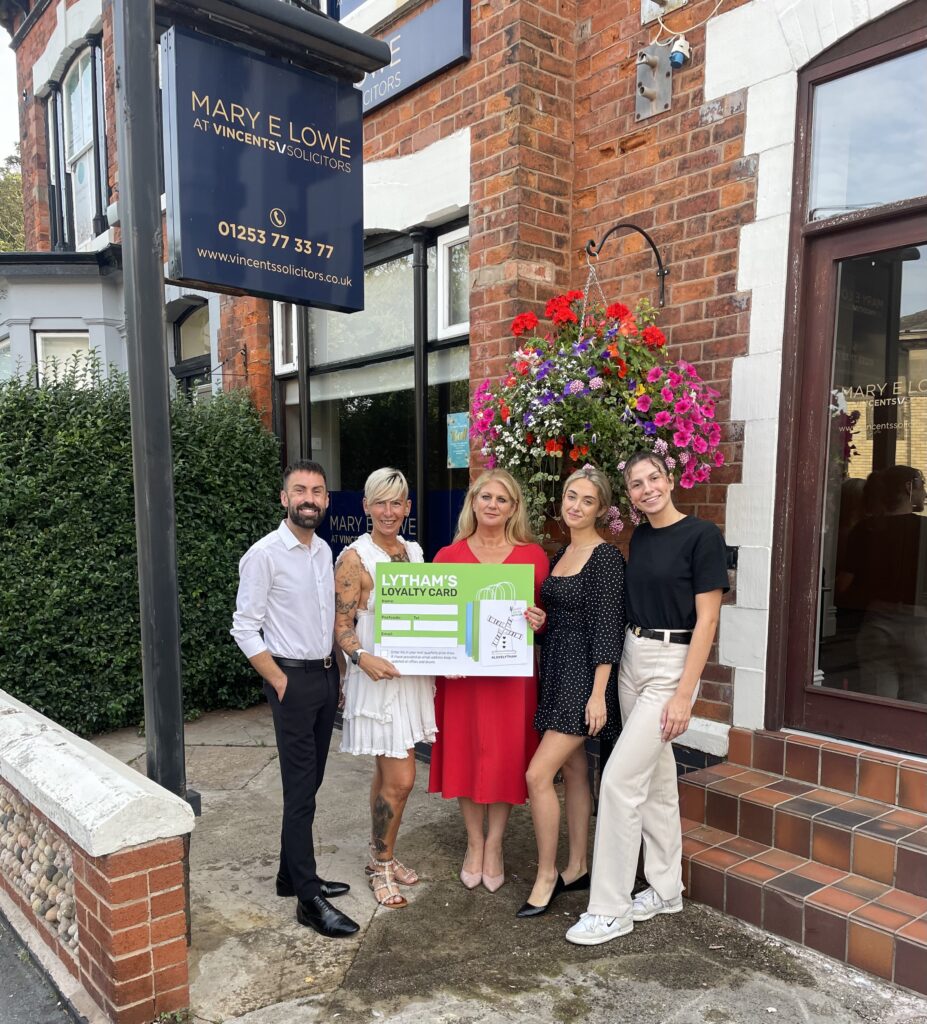Home > News
07/05/2025
Child Care Law
Child Care Law
Custody Arrangements
Family Law
Family Law
Preston
Protecting your child from conflict
Seperating Parents Advice
3 min read
How can separating parents best protect their children?
07/05/2025
A Godparent is not a Guardian
Half UK Parents have not appointed guardians
Lytham
Make a Will
Private Client
4 min read
A Godparent is not a Guardian
06/05/2025
Company and Commercial
Preston
1 min read
Companies House Identity Verification Changes
01/04/2025
Court of Protection
Garstang
Private Client
2 min read
New Court of Protection Team
17/02/2025
Family Law
Insights
Preston
5 min read
Media access to your divorce hearing, what you need to know
10/02/2025
Commercial Property
Family Law
News
Poulton
Preston
2 min read
Double delight for Vincents two newest solicitors
10/02/2025
Becoming a lawyer
Commercial Property
Insights
Poulton
2 min read
From the Big Top to the Law Firm
31/01/2025
Company and Commercial
Limitation periods
Preston
2 min read
What are the time limits for bringing a legal claim?
23/01/2025
Lytham
Private Client
Writing your will
Your Will and Pets
4 min read
What happens to my pet when I die?
23/01/2025
Lytham
Private Client
What is a Personal Representative
Wills and Probate Advice
2 min read
Statutory Notices
22/01/2025
Company and Commercial
Company and Commercial
Preston
Thatchers Cider vs Aldi
Trade Mark Advice
2 min read
Thatchers Cider vs Aldi
22/01/2025
Gynae Compensation Claims
Gynaecological Compensation Claims
Medical Negligence
Medical Negligence Advice
Medical Negligence Claims
Medical Negligence Claims Solicitors
Medical Negligence Solicitors
Preston
4 min read
NHS Gynae Delays
10/01/2025
Company and Commercial
Insights
Preston
1 min read
Privacy Policy for your Website
02/01/2025
Break Clauses and Commercial Leases
Commercial Property
Commercial Property
Commercial Property Lease Advice
Poulton
2 min read
Break Clauses
20/12/2024
High Net Worth Divorce
High Net Worth Divorce
Lytham
News
2 min read
Specialist HNW legal office triples in size
20/12/2024
Commercial Property
Company and Commercial
News
Poulton
Private Client
residential conveyancing
1 min read
Poulton new office opening party
17/12/2024
Commercial Property
Commercial Property
Poulton
Vincents Solicitors
2 min read
New Poulton office for Vincents Solicitors
03/12/2024
Commercial Law
Company and Commercial
Insights
Preston
Professional Sports Contract
1 min read
Top 6 essential points to include in your professional sports contract
03/12/2024
Commercial Property
Commercial Property
Insights
Leasehold Break Clauses
Leasehold Properties
Poulton
3 min read
Understanding Break Clauses in Property Leases
28/11/2024
Budget 2024
Lytham
Private Client
Uncategorised
3 min read
Budget 2024: Changes to Inheritance Tax
26/11/2024
Company and Commercial
Insights
Preston
4 min read
Budget 2024: Impact on Small Businesses
20/11/2024
Company and Commercial
Employment Law
employment law advice
employment law solicitor
Insights
New rules on redundancy and pregnancy
pregnancy and employment law
Preston
3 min read
Redundancy and pregnancy
31/10/2024
Buy to Let
Chorley
Landlord Advice
News
Penwortham
Poulton
Preston
residential conveyancing
Stamp Duty Increase
UK Budget
2 min read
Immediate Stamp Duty Increase
28/10/2024
News
Penwortham
Penwortham Community Business Network
Vincents Solicitors Penwortham
2 min read
Penwortham Cemetary Clean Up
25/10/2024
Commercial Law
Company and Commercial
Music Contract Advice
Music Contract Law
Preston
2 min read
Top 6 Elements in a Music Contract
22/07/2024
Divorce Law
Family Law
Full and Frank Disclosure
High Net Worth Divorce
Insights
Preston
2 min read
Dishonest disclosure punished in Divorce Proceedings
22/07/2024
Commercial Property
Commercial Property
Commercial Property Lease Advice
Insights
pop up shops
Poulton
short term lease
5 min read
Top5 tips for landlords and tenants about Pop up Shops
18/07/2024
Apple vs Samsung
Company and Commercial
News
Patent Advice
Patent Breach
Trademark Advice
Tradmark Breach
5 min read
Apple vs Samsung Patent Wars
18/07/2024
Chorley
Insights
residential conveyancing
1 min read
6 Things You Need to Know about Conveyancing Law
17/07/2024
1954 Landlord and Tenant Act
Commercial Property
Commercial Property
Contracting Out
Insights
Poulton
3 min read
Contracting out, what you need to know
10/07/2024
Family Law
Insights
Lytham
Preston
3 min read
Deluge of divorce cases expected this spring
10/07/2024
Divorce Advice
Divorce Rates in UK
Divorce Solicitor
Family Law
Family Law
High Net Worth Divorce
Insights
News
4 min read
New No Fault Divorce – the changes explained
10/07/2024
Insights
Law jobs
News
Trainee Solicitor jobs
Training contract
3 min read
Top trio win training contracts with Vincents
10/07/2024
Big Mac Vs Supermacs
Company and Commercial
Insights
News
Trademark
2 min read
The Big Mac of legal battles
03/07/2024
Divorce
Divorce Advice
Divorce Law
Divorce Rates in UK
Divorce Solicitor
Family Law
Family Law
Insights
5 min read
I’m a divorce lawyer and here’s why divorces are down 30%
28/05/2024
Commercial Property
Commercial Property Lease Advice
Insights
New Lease
Preston
Tenants and Lease
2 min read
Top tips for tenants taking new leases
13/05/2024
Cash Gifts
Cash Gifts to Family and Friends
Inheritance Tax Liabilities
Insights
Lytham
Private Client
Wedding Gifts
5 min read
Wedding gifts: How much can I give to someone getting married?
25/03/2024
Company and Commercial
Lidl wins Appeal against Tesco in trademarking row
News
Preston
Tesco vs Lidl Trademarking row
4 min read
Lidl v Tesco trademark row
18/03/2024
Court of Protection
Garstang
Insights
News
Private Client
5 min read
Welfare Benefits Check Service
12/03/2024
Chorley
News
Vincents Solicitors Chorley
Vincents Solicitors new office in Chorley
3 min read
Vincents Solicitors moves to new office in Chorley
11/03/2024
Court of Protection
Garstang
News
Private Client
Welfare Benefits Service
4 min read
Expansion for Vincents’ Court of Protection team
29/02/2024
Insights
Medical Negligence
Medical Negligence Advice
Medical Negligence Claims
Medical Negligence Claims Solicitors
Medical Negligence Solicitors
Preston
3 min read
Seeking Justice: Medical Negligence Claims
17/01/2024
Chorley
Garstang
Insights
Lytham
Penwortham
Poulton
Private Client
Trusts Solicitors
wills and Probate Solicitors
4 min read
What is an attorney, an executor, a trustee?
17/01/2024
Garstang
News
Private Client
3 min read
Vincents Solicitors raises vital funds for charity
13/12/2023
Coercive Control
Domestic Violence
Family Law
News
Preston
3 min read
Domestic violence specialist joins Vincents
20/11/2023
Garstang
News
Private Client
4 min read
New Head of Court of Protection and Trusts
14/11/2023
Company and Commercial
Insights
Preston
3 min read
Getting your business ready for sale and exit
07/11/2023
Garstang
Insights
Lytham
New Intestacy rules
Private Client
write a will to protect your partner
2 min read
Write a Will, Protect your partner
07/11/2023
Company and Commercial
News
Preston
3 min read
Vincents Solicitors welcomes former CPS trainee
07/11/2023
Insights
Lytham
Preston
Private Client
3 min read
Protect your assets for your children’s future
07/11/2023
Insights
Lytham
Private Client
Trusts Advice
Trusts Solicitors
Wills
wills and Probate Solicitors
6 min read
Gifting the Family Home v Establishing a Property Trust
31/10/2023
Commercial Property
Company and Commercial
Lytham
News
Preston
4 min read
Vincents Solicitors advises developer Walker & Williams
18/05/2023
Chorley
Leasehold Properties
New Build Properties
News
Penwortham
2 min read













































































































